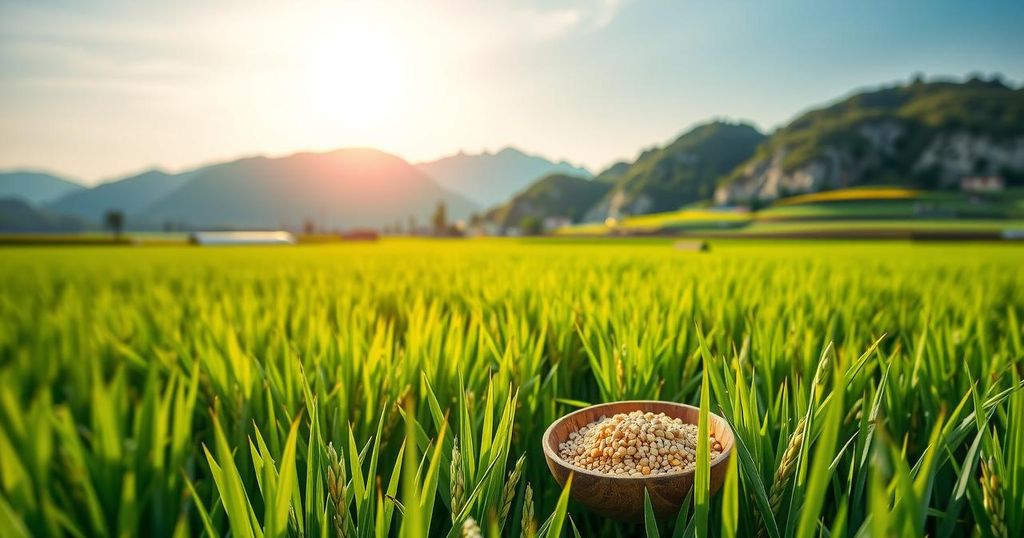Farmers and scientists in eastern India are employing ancient rice seeds to combat climate issues such as flooding and soil salinity. This initiative, highlighted by William Kremer’s visit to the Sundarbans, showcases the resilience and skills of local rice growers amidst climate-related adversities. Additionally, valuable insights from Dr. Rafal Gutaker and related programs further emphasize the broader implications of rice cultivation in tackling climate challenges.
In the quest to combat climate change, farmers and scientists in eastern India are utilizing ancient rice seeds, which are being cultivated to address challenges such as flooding, soil salinity, and drought. The BBC’s William Kremer recounts his experience in the Sundarbans of West Bengal, a region severely impacted by cyclones and rising sea levels that have devastated crops and livelihoods. In this stark environment, local rice growers are drawing upon ancestral agricultural techniques to sustain their families and communities.
Additionally, Dr. Rafal Gutaker, a rice expert from Kew Gardens in London, provides a broader perspective on the implications of rice cultivation globally. His knowledge enhances the understanding of how ancient practices can be revitalized for contemporary agricultural challenges. Furthermore, those interested in rice can explore the BBC World Service’s Food Chain programme, which has recently addressed the climate impacts associated with this vital crop.
In summary, the innovative use of ancient rice seeds by farmers in eastern India highlights a potent strategy against the adverse effects of climate change, particularly in vulnerable regions like the Sundarbans. This approach not only showcases traditional knowledge but also emphasizes the importance of adapting agricultural practices to ensure food security in the face of environmental challenges. Experts like Dr. Rafal Gutaker provide valuable insights into the significance of these practices on a global scale.
Original Source: www.bbc.com






